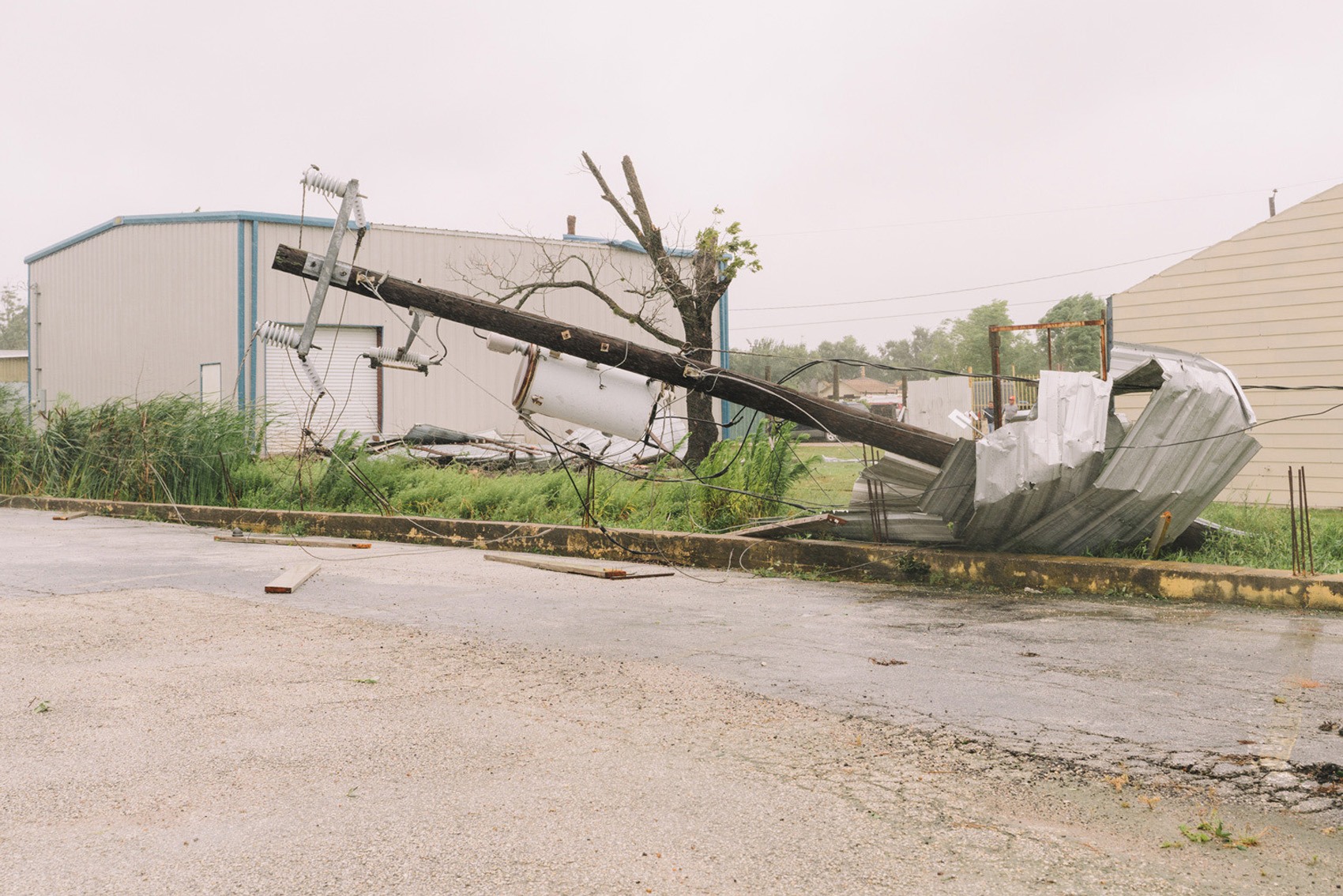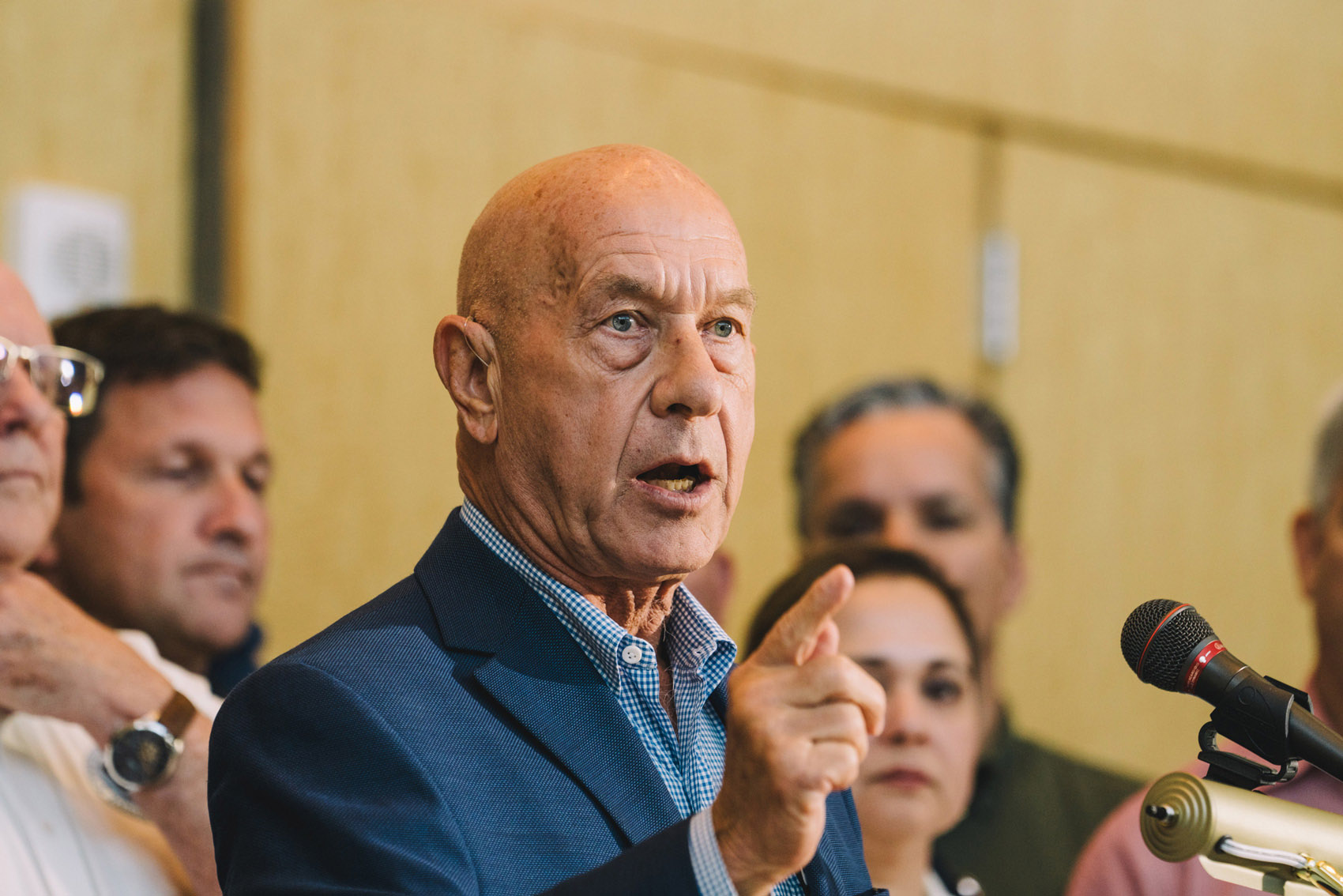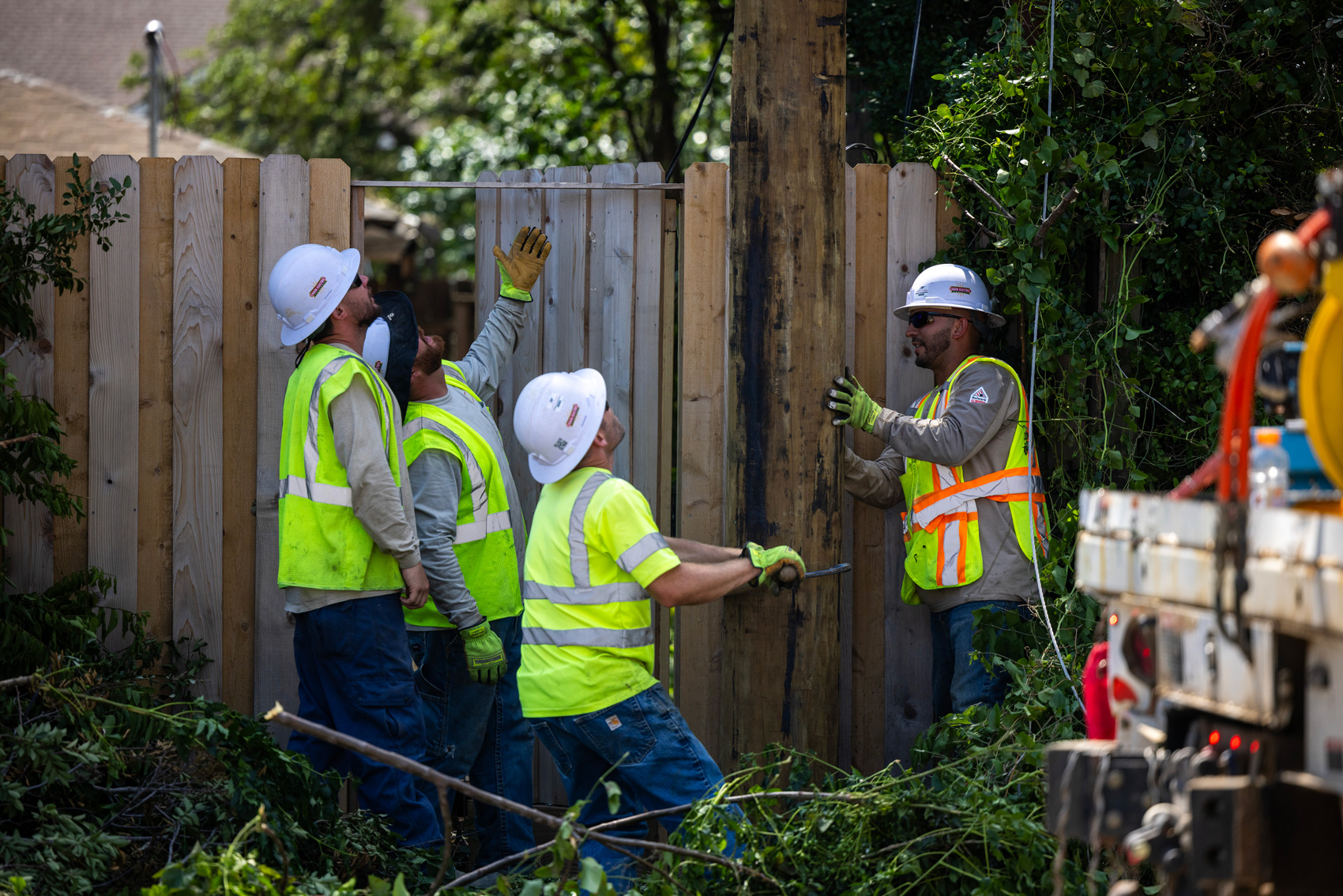|
Getting your Trinity Audio player ready...
|
CenterPoint Energy faced an early round of scrutiny Tuesday about whether it adequately prepared for Hurricane Beryl, as more than 1 million Houston-area customers prepared to sweat through multiple days without power.
Texas Lt. Gov. Dan Patrick, utility experts and local residents questioned whether the company, which manages the electricity infrastructure serving nearly all of Harris and Fort Bend counties, could have done more to reduce widespread outages and shorten restoration times.
The scrutiny follows CenterPoint leaders acknowledging that they didn’t expect Beryl to hit Houston as hard as it did Monday morning, when the Category 1 hurricane slammed into the Texas coast and brought winds approaching 100 mph to the region. A CenterPoint spokesperson said Tuesday that the company didn’t forecast the storm turning toward Greater Houston, though meteorologists widely predicted the possibility of severe winds and scattered flooding hitting the region.
About 1.4 million customers remained without power as of Tuesday evening, about 36 hours after Hurricane Beryl arrived in Greater Houston. CenterPoint officials have said most of them might not have electricity until Thursday at the earliest.

related to hurricane beryl
Stranded after Beryl: How some Houston neighborhoods suffer after hurricanes
by Michael Murney / Staff Writer
Patrick, who is serving as acting governor while Gov. Greg Abbott is in Asia on an economic development trip, said Tuesday that he expects the state Legislature and Public Utility Commission of Texas will review CenterPoint’s actions before the storm. The lieutenant governor said he’s reserving judgment on CenterPoint’s approach until he gets a full report on how the company planned and dispatched work crews, though he was skeptical of claims that the storm path changed.
“Any thought that people were surprised that the storm might come to Houston is shocking to me,” Patrick said. “CenterPoint will have to answer for themselves if they were prepared and positioned.”
CenterPoint leaders attempted to dispel the idea Tuesday that the company wasn't prepared for Hurricane Beryl, pointing to the 12,000 out-of-area frontline workers laboring to restore power Tuesday. CenterPoint coordinated before the storm with about 2,500 utility crew members from outside of the region and state to jump into action, then called nearly 10,000 more after the hurricane moved through Houston.
“No storm is alike. We looked at what was projected to be the path and what the impact would be and we prepared for that,” CenterPoint Director of Communications Alyssia Oshodi said in an interview Tuesday. “But what resulted was a little bit off what we thought the path was, and much more of a significant impact than what we initially thought we were going to see.”
About 2.2 million customers lost power as a result of the storm, CenterPoint leaders said. The company expects to have about 1 million outages fixed by Wednesday night, but it hasn’t released a timeline for delivering electricity to the remaining customers.
CenterPoint’s Outage Tracker, a map of the Houston metro area highlighting outages, has been offline since May, when a derecho knocked out power for nearly 1 million customers. The lack of neighborhood-level detail has left frustrated customers without real-time information on restoration estimates. CenterPoint posted a slimmed-down version of the map late Tuesday, showing which areas had power restored and which were still in the works.

A complex issue
While online criticism and political pressure toward CenterPoint mounted Tuesday, meteorologists and engineers cautioned that storm preparedness is a complicated calculus for utility companies.
Michael Webber, an energy resources professor and chair at the University of Texas at Austin, said utilities must run a cost-benefit analysis before every severe weather event to determine how many outside utility crews to hire. Webber said he didn’t believe CenterPoint was “particularly negligent,” noting that many people were caught off-guard by the severity of the storm.
“You don’t know how bad the hurricane’s going to be, and you don’t want to have 10,000 people there if you only need 3,000, because you have to pay for it,” Webber said. “It’s a balancing act.”
Matt Lanza, editor and meteorologist at Space City Weather, said in an interview Tuesday that Beryl was far more destructive in some areas than expected. Lanza said the storm rapidly intensified at landfall and lasted longer than expected over land, producing damage more representative of a stronger Category 2 storm.

related to hurricane beryl
Lack of generators hampers Houston’s ability to respond to widespread power outages
by Paul Cobler / Staff Writer
“Meteorologists had all talked about that a couple days beforehand, saying we’re really going to have some issues, particularly south of I-10,” Lanza said. “The only thing a bit surprising was the damage north of I-10. I didn’t expect to see quite as much there.”
Still, Lanza said government officials and utility providers had at least two to three days of advance notice that the storm could cause major problems for Houston. Paul Lock, manager of local government relations for CenterPoint, argued Tuesday that the storm shifted in the 24 hours before it hit Houston.
“Especially after the derecho, why wouldn’t you overly prepare for something that could be more intense,” Lanza said.
Harris County Judge Lina Hidalgo said she’s also heard questions from the public about CenterPoint’s response, prompting her to seek more information. For now, Hidalgo signaled support for CenterPoint’s leadership.
“We’re all looking, we’re all upset, and what I’m trying to figure out is with a level head, parse out: Are they acting in good faith or are they not?” Hidalgo said. “And right now, I’m on the first side.“

‘A fundamental reckoning’
While CenterPoint fields questions about its preparations for Beryl, Webber pointed to longstanding weaknesses in Texas’ electricity infrastructure — such as old poles, wires and transformers — as an issue that will continue to make hurricane season difficult for Houstonians.
“What’s happening now is more of a preview of the future than people recognize,” said Webber. “We as a society have to grapple with the fact that we built our grid for the weather of the 1970s and now we’ve got the weather of the 2020s.”
Webber noted that CenterPoint filed a wide-ranging resiliency plan with the Texas Public Utility Commission in April, outlining more than $2 billion in updates it wants to make between 2025 and 2027. The largest share of the spending, roughly $1.5 billion, would go toward replacing utility poles and towers, rebuilding circuits and upgrading equipment near the Gulf Coast.
Funding for the updates could come from government grants or customer rate hikes, among other sources.
“There’s a fundamental reckoning we have to go through as a society,” Webber said. “That means investing more to make the system more robust, and that’s going to cost more.”
U.S. Sen. Ted Cruz, R-Texas, urged the region Tuesday to “rebuild in a way that is smart,” such as hardening power infrastructure and continuing to lobby for construction of the “Ike Dike.” The Ike Dike is a proposed coastal barrier intended to protect the Houston-Galveston area from hurricane storm surge.
“Let’s not build back in the exact same way where we repeat the same disaster,” Cruz said. “I think that’s a very important question to focus on.”
Staff writer Paul Cobler contributed to this report.


